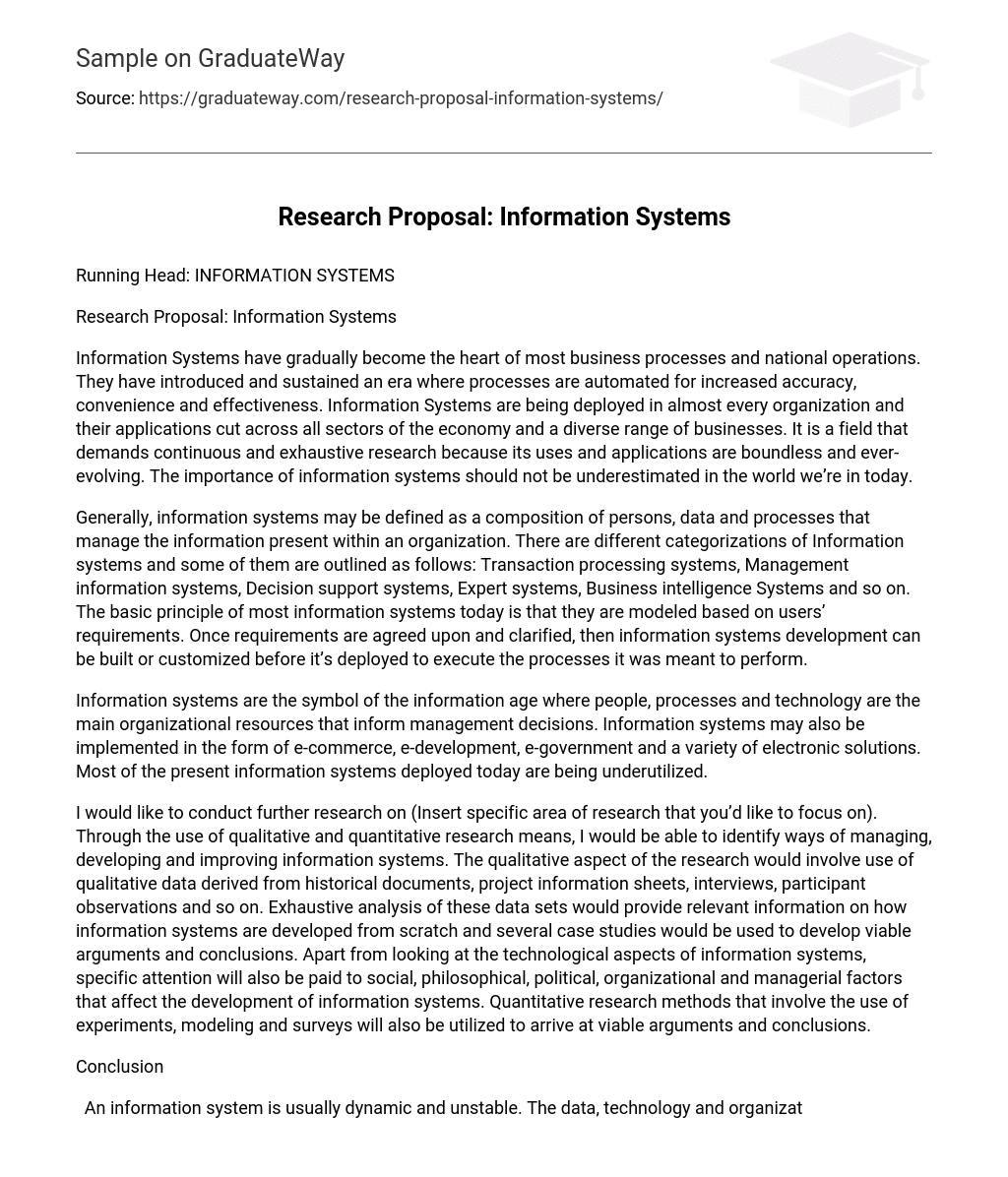Information Systems have gradually become the heart of most business processes and national operations. They have introduced and sustained an era where processes are automated for increased accuracy, convenience and effectiveness. Information Systems are being deployed in almost every organization and their applications cut across all sectors of the economy and a diverse range of businesses. It is a field that demands continuous and exhaustive research because its uses and applications are boundless and ever-evolving. The importance of information systems should not be underestimated in the world we’re in today.
Generally, information systems may be defined as a composition of persons, data and processes that manage the information present within an organization. There are different categorizations of Information systems and some of them are outlined as follows: Transaction processing systems, Management information systems, Decision support systems, Expert systems, Business intelligence Systems and so on. The basic principle of most information systems today is that they are modeled based on users’ requirements. Once requirements are agreed upon and clarified, then information systems development can be built or customized before it’s deployed to execute the processes it was meant to perform.
Information systems are the symbol of the information age where people, processes and technology are the main organizational resources that inform management decisions. Information systems may also be implemented in the form of e-commerce, e-development, e-government and a variety of electronic solutions. Most of the present information systems deployed today are being underutilized.
I would like to conduct further research on (Insert specific area of research that you’d like to focus on). Through the use of qualitative and quantitative research means, I would be able to identify ways of managing, developing and improving information systems. The qualitative aspect of the research would involve use of qualitative data derived from historical documents, project information sheets, interviews, participant observations and so on.
Exhaustive analysis of these data sets would provide relevant information on how information systems are developed from scratch and several case studies would be used to develop viable arguments and conclusions. Apart from looking at the technological aspects of information systems, specific attention will also be paid to social, philosophical, political, organizational and managerial factors that affect the development of information systems. Quantitative research methods that involve the use of experiments, modeling and surveys will also be utilized to arrive at viable arguments and conclusions.
Conclusion
An information system is usually dynamic and unstable. The data, technology and organization all interact and change each other. It is a system that evolves based on the mutually-transforming and ongoing interactions between information technology and the organization. This is the basis for the continuous research that needs to be implemented in this field of study (Lee, 2008).
Further research is needed in this area because the core of any society can only be improved through the use of Information Systems. It’s a broad area of research that needs to be constantly explored and improved upon. For any business, individual, organization or nation to remain competitive, remarkable progress has to be made and sustained both in the implementation and research into Information Systems Technology. There is always an urgent need to stay one step ahead of current innovations and technological trends for reasons of national interest, security and economic advancement.
References
- Lee, A. S. ( 2008). Three Wishes I Have for the Information Systems Field. Virginia Commonwealth University. Richmond: Southern Association for Information Systems.





